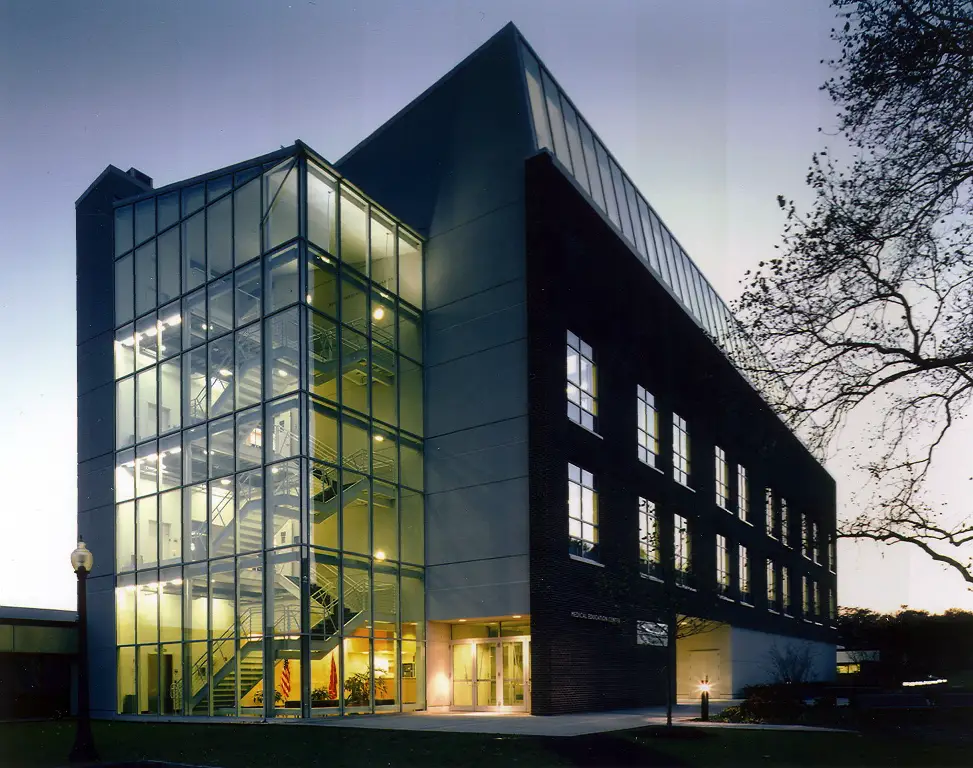The White Plains Common Council has objected to plans by a Westchester nonprofit for a group home that could house 10 people with developmental disabilities
The council approved a resolution on April 3 to designate up to $30,000 to employ special counsel to oppose the proposed group home at 22 New York South Ave. That resolution follows two public hearings at which the council members heard from a series of residents concerned with the proposed project”™s size and location. The Common Council passed a resolution objecting to the group home earlier in March.
The housing proposal comes from The Institutes of Applied Human Dynamics Inc., a Tarrytown-based nonprofit that provides services in Westchester and the Bronx for people with intellectual and developmental disabilities.
IAHD would use the 8-bedroom, 5-bathroom home on New York South Avenue as a group home for 10 people with intellectual and physical developmental disabilities. The house would be staffed at all hours, with IAHD providing housing, meals, recreation and nursing services for the residents.
Those residents now live in a group home in Mount Vernon. The previous operators of that home decided last year to no longer operate the facility. IAHD tried to extend the lease or purchase the previous group home, but was unable to, according to its application to the city.
“We are asking the community to give us an opportunity to live quietly and in harmony as we have done in so many neighborhoods,” said Stanley Silverstein, executive director of IAHD, at a March public hearing.
IAHD was started in 1957 by a group of parents of children with developmental disabilities. The nonprofit employs 800 people and provides services to another 800 through 30 group homes, with 20 in the Bronx and 10 in Westchester.
The plans for the group home on New York South Avenue caught the attention of residents in the proposed home”™s Prospect Park neighborhood. The public hearing on the proposal last month lasted more than two hours. Residents cited the size of the group home and a saturation of similar facilities nearby as reasons for the Common Council to oppose the plan.
Michelle Perkins, president of the Prospect Park Neighborhood Association, said the proposal is too large for the residential neighborhood. The neighborhood streets are narrow and often busy with children and other pedestrians, she said. Neighbors are concerned about increased dangers from potential traffic caused by staff members and other uses from the group home.
“What we”™ve tried to prove to the city is largely the safety issue,” Perkins told the Business Journal. “We are not against having a home for the developmentally disabled in Prospect Park.”
Under a state law known as the Padavan law, group home proposals are treated as a single-family residence for local zoning review. A municipality can only suggest an alternative site or object to the establishment of a group home if it would create a concentration of the facilities that would alter a neighborhood”™s character. The state has the final say on the proposal.
Silverstein said that previous group homes proposed by IAHD have faced similar resident concerns about traffic and safety.
“Those are the types of concerns brought up, this is not unique to Prospect Park,” Silverstein told the Business Journal. “Concerns about what will this do to traffic? What will this do to safety? Who are these people that are going to live there? We hear that often, but we don”™t often have the municipality object.”
The resolution passed by the Common Council on March 8 objected to IAHD”™s proposal on the grounds that the establishment would “result in such a concentration of community residential facilities that the nature and character” of the neighborhood would be altered. The council voted 6-1 in favor of the objection.
“I have lived near a group home and didn”™t have any issue,” said Councilwoman Nadine Hunt-Robinson. However, in this, “I conclude we have reached oversaturation point and that the proposed community residence would irreparably change the nature and the character of the community.”
Councilwoman Beth Smayda cast the only vote against the objection filed by the city.
“I need to live with my decisions also,” Smayda said. “And I truly do not have it in my heart to tell these potential residents that they are not welcome in White Plains.”
There are 35 group home facilities in White Plains, according to a map posted on the city”™s website. While this would be the first in the Prospect Park neighborhood, there are facilities nearby on West Post Road and Tibbits Avenue. IAHD”™s application said a “saturation pre-study” from the state Office for People with Developmental Disabilities found that there was not an abundance of similar homes in the neighborhood.
The proposal will next be reviewed April 19 by a hearing officer designated by the state Office for People with Developmental Disabilities.






















